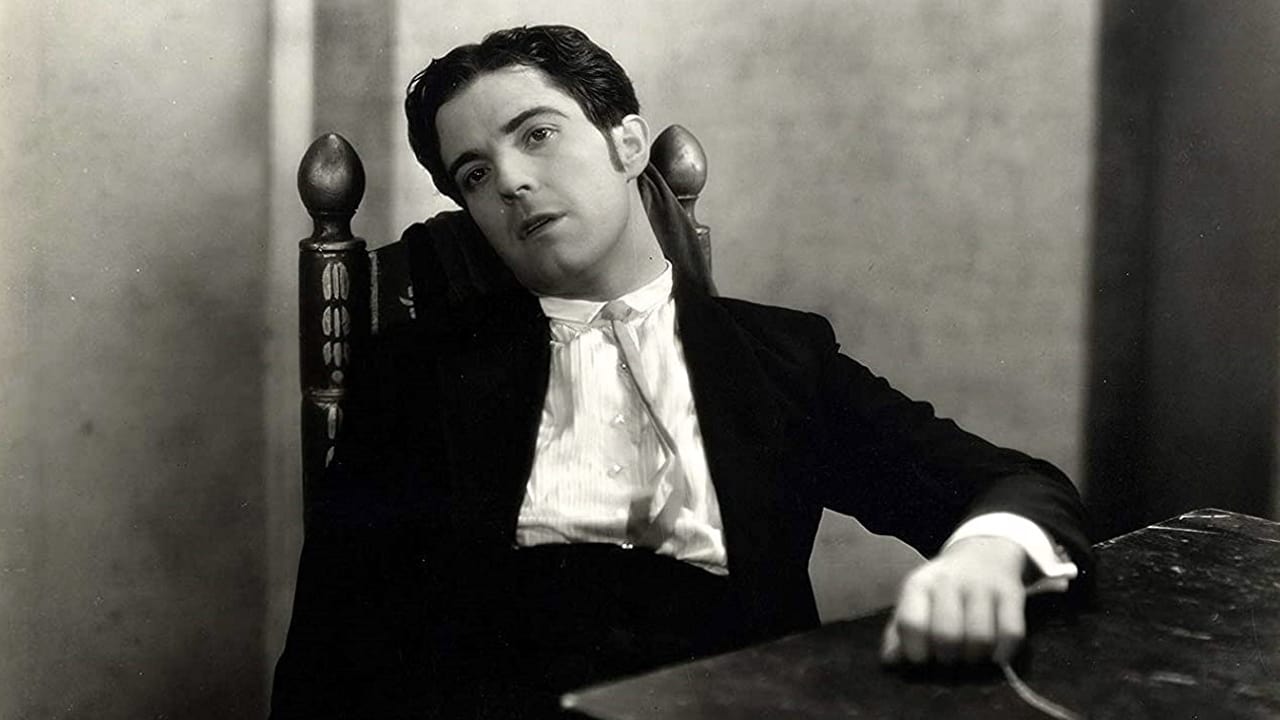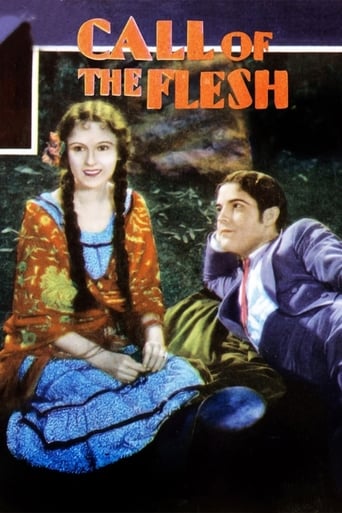

In a Spanish convent, girlish-acting Dorothy Jordan (as Maria Consuelo Vargas) is thinking about taking her final vows when she hears handsome Ramon Novarro (as Juan de Dios) singing in a nearby cantina. She sneaks away from the nunnery to watch Mr. Novarro sing. The seemingly aroused Ms. Jordan looks like she may never become a nun. Novarro playfully turns down some after-hours bedtime with attractive dancing partner Renee Adoree (as Lola) – proving "Whatever Lola wants, Lola gets" is not correct, this time. Next, Novarro sups with operatic mentor Ernest Torrence (as Esteban), steals a few things at the market, and then meets Jordan. The two become mutually attracted... Hoping to advance his career, Novarro moves to Madrid with Mr. Torrence going along as singing coach. They take love-struck Jordan along to serve as cook. Back at the convent, Ms. Adoree jealously informs Jordan's brother Russell Hopton (as Enrique Vargas) about her association with Novarro. The nuns say Jordan never took her final vows, but Mr. Hopton expects his sister to remain holy – he is understandably upset about her running away with a young man. We're supposed to think there is some danger in this, but there is none... "Call of the Flesh" is a silly piece of fluff. Jordan was capable of much more – here, she's stuck impersonating a giggling novice. Adoree does better with her role. Sadly, this was the last film for Adoree, who often appeared supporting bigger stars – like Novarro, John Gilbert and Lon Chaney. She became ill during production and succumbed to tuberculosis in 1933. His female co-stars have a fine rapport with Novarro. Greater as a villain, Torrence is out of sorts as Novarro's loving mentor. The cameras adore Novarro. There are clearly times when director Charles Brabin is unable to reign him in, but Novarro is charming in spite of it all. Most important to his new generation of fans, he looks terrific. ***** Call of the Flesh (8/16/30) Charles Brabin ~ Ramon Novarro, Dorothy Jordan, Ernest Torrence, Renee Adoree
... View MoreRamon Novarro's pedestrian sound period hastened an end to his film career and Call of the Flesh may well be the vehicle that pushed him over the cliff. In the silent era Novarro's handsome chiseled features, dark eyes and killer smile showed him adept at both drama (The Red LIly, The Pagan) and romantic comedy ( The Student Prince of Heidleberg) but in Call of the Flesh he is a triple fret as speaks, sings and dances dreadfully. Juan Di Deos is a carefree entertainer that loves to play tricks and chase the ladies. His fiery dance partner Lola (Renee Adoree) is often the victim of his childish pranks but is crazy about the guy. Nun in training Maria Vasquez however is the one that captures his heart. Career wise he has the same laissez faire attitude which frustrates his mentor Esteban who pulls strings to get him an audition with an opera impresario. When Juan botches it Esteban reverts to bribery to get him on the stage. Meanwhile Lola gets wind Juan's romancing the good sister and tries to break it up. Call of the Flesh is early sound at its worst. Without his title cards doing the talking Novarro comes across like a mischievous twelve year old. The timber in his voice fails to live up to his look and his singing and dancing would get the hook at a local amateur show. Aquitting themselves as shabbily as Novarro fellow silent film alumni Ernest Torrence and the ailing Renee Adoree overact monstrously while fresh faces Dorothy Jordan and Russell Hopton make it clear they will have short careers.Charles Brabin's direction is haphazard and flat as he allows his troupe to step on each others lines and display bad timing; some of it so poor you get the feeling he might have had his face buried in a newspaper oblivious to the action being recorded. One could hardly fault him for averting his eyes since Call of the Flesh is dead meat from the opening reel.
... View MoreBy no means a "B" film in budget, but definitely one in story and technique. After seeing this effort, it's remarkably easy to understand why Novarro's stellar career declined so rapidly and dramatically in the sound era. It's not that there's anything wrong with his voice, it's just that his acting seems so ludicrously inept and his personality so colorless and lacking in charisma. Mind you, if you turn off the sound, then Novarro's gestures and even his persona appear quite acceptable. But with sound in this film, he's just ridiculous! True, the script itself is a load of old romantic melodrama that's about impossible to stomach, let alone get involved in. The only way to rescue this sort of operettish stew from the throw-out pot, is to pep it up with flair and imagination. Unfortunately, Charles Brabin is not this sort of chef at least not here. He did learn his lesson, but here his direction is little more than disinterested and/or routine. Even the sets lack the pictorial qualities we usually associate with Cedric Gibbons. The sound recording of course is poor. But at least the photography in the present wholly black-and-white version telecast by TCM retains appeal.
... View MoreThis is one of my favorite films of all time. I loved every character, and every actor and actress. The film is charming. It is serious, funny, heartwarming; and the music is both charming and beautiful. This story must have been written with Ramon Novarro, Dorothy Jordan, and Renee Adoree in mind; but the whole cast is "perfect". I wish that this film will someday be available on video. Some may find this film naive or too simplistic, but it's innocence and sincerity overwhelm me.
... View More